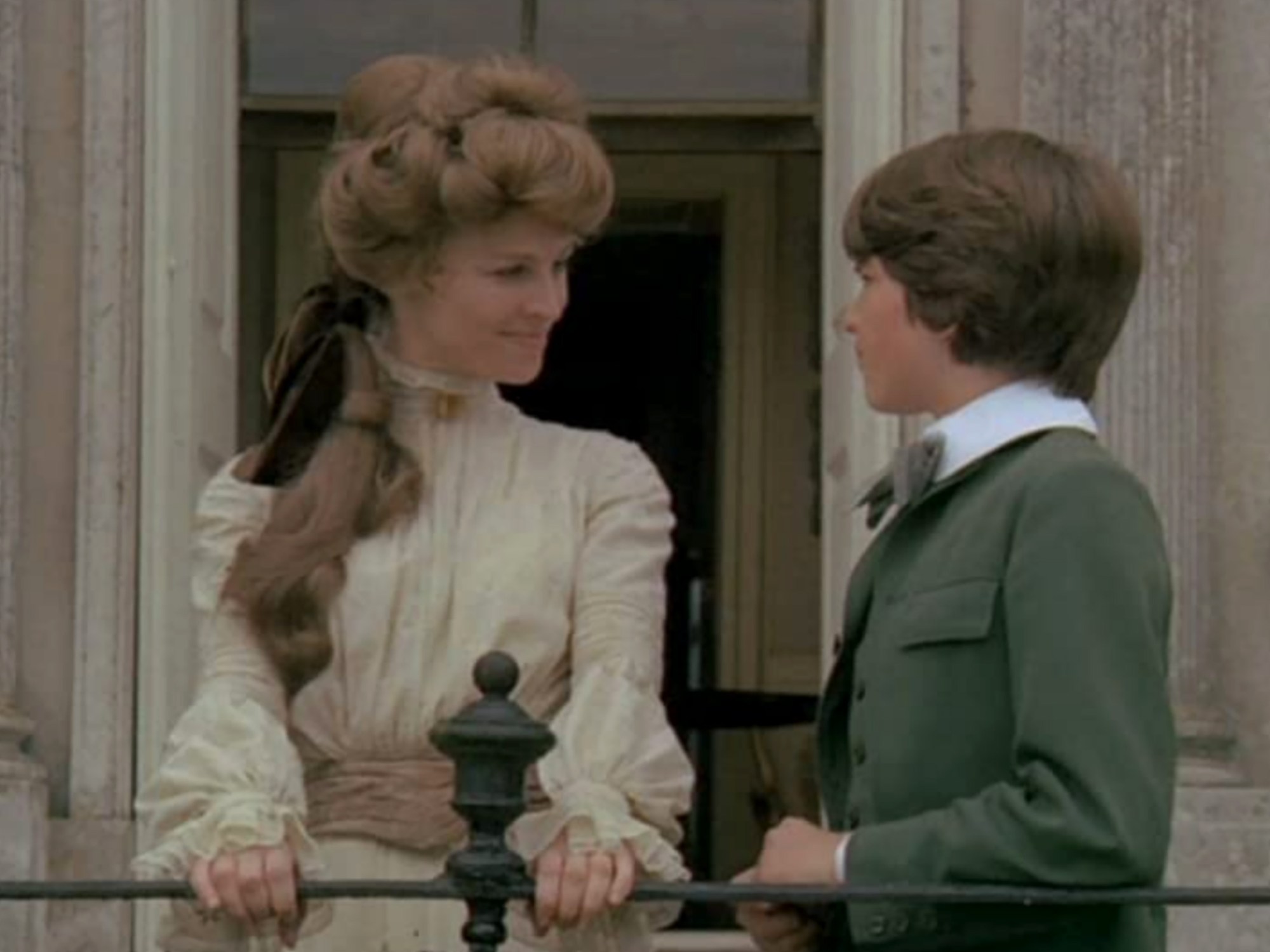
- Film
“The Go-Between” by Joseph Losey (1971)
“The past is a foreign country. They do things differently there.” So muses Leo Colston, now in his seventies, as he reflects on what happened during that scorching summer of 1900, so many years ago, and why it left such an indelible mark on his psyche.
About to turn thirteen, he had been invited by his schoolmate Marcus Maudsley to spend a fortnight at Brandham Hall, his family’s grand country house in Norfolk. For middle-class Leo (fresh-faced Dominic Guard in his first movie role), this is the discovery of a novel and endlessly fascinating new world. The huge manor and its vast bucolic surroundings provide an imposing backdrop against which the Maudsleys’ landed gentry life is regimented by strict ceremonial and social codes. Family members and guests dress up formally for dinner, which is attended by numerous servants. Entertainment consists of leisurely walks on the estate, swims in the pond to escape from the blazing heat, cricket matches with locals, afternoon tea and games of croquet on the lawn…
Leo develops an instant and innocent crush on Marcus’s beautiful elder sister Marian (Julie Christie at her most ravishing). Engaged to the Viscount Tremingham (a dashing Edward Fox), she is also having an affair with Ted Burgess (the ideally cast Alan Bates), a ruggedly handsome farm hand living nearby. Soon Marian asks the smitten boy to be a go-between for the lovers and deliver their messages, trusting him to keep their secret. With Marcus quarantined with the measles, Leo, free and left to his own devices, is only too happy to oblige and act as the eager postman for Marian. But this seemingly enchanted and carefree summer will come to a tragic end on his birthday when the couple is caught in the act in front of a shocked Leo. He finally understands that he had been just a convenient pawn for the two. He undergoes a sudden rite of passage and is hit by the painful realization of the cruelty and ugliness of the adult world, of a new emotional awareness about the mystery of love and the secrets of sex, and an entry into the realm of moral ambiguity and the mental anguish of conflicting loyalties.
Directed by American-born Joseph Losey, The Go-Between was adapted from the 1953 novel by L.P. Hartley, a powerful and moving coming-of-age story about the loss of innocence, along with a subtly devastating critique of the toxicity of the British class structure and its social order. The film marked Losey’s third collaboration with screenwriter Harold Pinter, following The Servant (1963) and Accident (1967). Pinter had been reluctant at first to tackle the book, saying, “It’s too painful, it’s too perfect.”
By the time the film was made, Losey had been living in England for seventeen years, exiled from Hollywood after having been blacklisted. As he told The New York Times in August 1971, “The Go-Between was one of the happiest pictures I’ve ever made.” What attracted him to the book, he explained, “is what’s in the film, the terrible sense of shortness of any human life, the sense of totality in life. It is certainly not a romantic or sentimental piece. It has a surface and coating of romantic melodrama, but it has a bitter core.”
The better to emphasize that contrast, Losey instructed his trusted cinematographer Gerry Fisher (they did seven films together) to make “the picture look hot and like a slightly faded Renoir or Constable – the color mostly gold and brown, the green minimized as possible…”
Certainly, the movie would never have had the same impact without another iconic score by Michel Legrand (Summer of 42 was released the same year). In his 2018 memoir, “It’s My Regret To Have To Say Yes To You,” Legrand vividly recalls how Losey had asked him to compose the music and, as an illustration, had made him listen to the kind of music he had in mind. “Sugary strings, with a tenor sax screaming, like the music used in bordellos! I thought it was a joke. I had been enraptured by the profound cruelty of the film, so what I heard felt like a total misinterpretation. I told him it was wrong for the film.” Against Losey’s instructions, Legrand did follow his instincts and came up with an unusual, pulsating and baroque theme that Losey hated at first but ended up using without telling him he would. The director later sent Legrand an apologetic telegram, admitting he had been wrong in his original suggestion.
The Go-Between won the Grand Prix (which between 1964 and 1974, replaced the Palme d’or) at the 24th Cannes Film Festival in May 1971, over Luchino Visconti’s Death in Venice, which was considered one of the other favorites that year. It was nominated for a Golden Globe a year later in the category Foreign Film English language.

